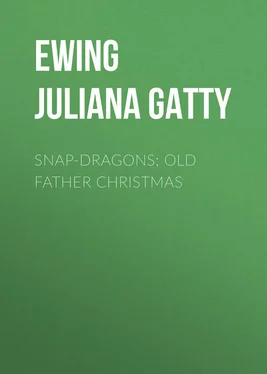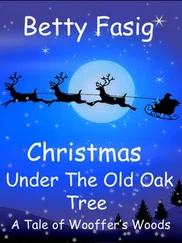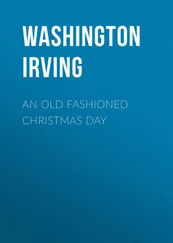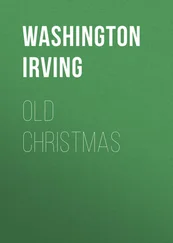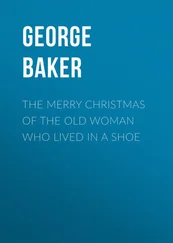Juliana Ewing - Snap-Dragons; Old Father Christmas
Здесь есть возможность читать онлайн «Juliana Ewing - Snap-Dragons; Old Father Christmas» — ознакомительный отрывок электронной книги совершенно бесплатно, а после прочтения отрывка купить полную версию. В некоторых случаях можно слушать аудио, скачать через торрент в формате fb2 и присутствует краткое содержание. Жанр: foreign_antique, foreign_prose, foreign_sf, на английском языке. Описание произведения, (предисловие) а так же отзывы посетителей доступны на портале библиотеки ЛибКат.
- Название:Snap-Dragons; Old Father Christmas
- Автор:
- Жанр:
- Год:неизвестен
- ISBN:нет данных
- Рейтинг книги:4 / 5. Голосов: 1
-
Избранное:Добавить в избранное
- Отзывы:
-
Ваша оценка:
- 80
- 1
- 2
- 3
- 4
- 5
Snap-Dragons; Old Father Christmas: краткое содержание, описание и аннотация
Предлагаем к чтению аннотацию, описание, краткое содержание или предисловие (зависит от того, что написал сам автор книги «Snap-Dragons; Old Father Christmas»). Если вы не нашли необходимую информацию о книге — напишите в комментариях, мы постараемся отыскать её.
Snap-Dragons; Old Father Christmas — читать онлайн ознакомительный отрывок
Ниже представлен текст книги, разбитый по страницам. Система сохранения места последней прочитанной страницы, позволяет с удобством читать онлайн бесплатно книгу «Snap-Dragons; Old Father Christmas», без необходимости каждый раз заново искать на чём Вы остановились. Поставьте закладку, и сможете в любой момент перейти на страницу, на которой закончили чтение.
Интервал:
Закладка:
Juliana Horatia Gatty Ewing
Snap-Dragons; Old Father Christmas
Chapter One
Once upon a time there lived a certain family of the name of Skratdj. (It has a Russian or Polish look, and yet they most certainly lived in England.) They were remarkable for the following peculiarity. They seldom seriously quarrelled, but they never agreed about anything. It is hard to say whether it were more painful for their friends to hear them constantly contradicting each other, or gratifying to discover that it “meant nothing,” and was “only their way.”
It began with the father and mother. They were a worthy couple, and really attached to each other. But they had a habit of contradicting each other’s statements, and opposing each other’s opinions, which, though mutually understood and allowed for in private, was most trying to the by-standers in public. If one related an anecdote, the other would break in with half-a-dozen corrections of trivial details of no interest or importance to anyone, the speakers included. For instance: Suppose the two dining in a strange house, and Mrs Skratdj seated by the host, and contributing to the small-talk of the dinner-table. Thus: —
“Oh yes. Very changeable weather indeed. It looked quite promising yesterday morning in the town, but it began to rain at noon.”
“A quarter past eleven, my dear,” Mr Skratdj’s voice would be heard to say from several chairs down, in the corrective tones of a husband and a father; “and really, my dear, so far from being a promising morning, I must say it looked about as threatening as it well could. Your memory is not always accurate in small matters, my love.” But Mrs Skratdj had not been a wife and a mother for fifteen years, to be snuffed out at one snap of the marital snuffers. As Mr Skratdj leaned forward in his chair, she leaned forward in hers, and defended herself across the intervening couples.
“Why, my dear Mr Skratdj, you said yourself the weather had not been so promising for a week.”
“What I said, my dear, pardon me, was that the barometer was higher than it had been for a week. But, as you might have observed if these details were in your line, my love, which they are not, the rise was extraordinarily rapid, and there is no surer sign of unsettled weather. – But Mrs Skratdj is apt to forget these unimportant trifles,” he added, with a comprehensive smile round the dinner-table; “her thoughts are very properly absorbed by the more important domestic questions of the nursery.”
“Now I think that’s rather unfair on Mr Skratdj’s part,” Mrs Skratdj would chirp, with a smile quite as affable and as general as her husband’s. “I’m sure he’s quite as forgetful and inaccurate as I am. And I don’t think my memory is at all a bad one.”
“You forgot the dinner hour when we were going out to dine last week, nevertheless,” said Mr Skratdj.
“And you couldn’t help me when I asked you,” was the sprightly retort. “And I’m sure it’s not like you to forget anything about dinner , my dear.”
“The letter was addressed to you,” said Mr Skratdj.
“I sent it to you by Jemima,” said Mrs Skratdj.
“I didn’t read it,” said Mr Skratdj.
“Well, you burnt it,” said Mrs Skratdj; “and, as I always say, there’s nothing more foolish than burning a letter of invitation before the day, for one is certain to forget.”
“I’ve no doubt you always do say it,” Mr Skratdj remarked, with a smile, “but I certainly never remember to have heard the observation from your lips, my love.”
“Whose memory’s in fault there?” asked Mrs Skratdj triumphantly; and as at this point the ladies rose, Mrs Skratdj had the last word.
Indeed, as may be gathered from this conversation, Mrs Skratdj was quite able to defend herself. When she was yet a bride, and young and timid, she used to collapse when Mr Skratdj contradicted her statements, and set her stories straight in public. Then she hardly ever opened her lips without disappearing under the domestic extinguisher. But in the course of fifteen years she had learned that Mr Skratdj’s bark was a great deal worse than his bite. (If, indeed, he had a bite at all.) Thus snubs that made other people’s ears tingle, had no effect whatever on the lady to whom they were addressed, for she knew exactly what they were worth, and had by this time become fairly adept at snapping in return. In the days when she succumbed she was occasionally unhappy, but now she and her husband understood each other, and having agreed to differ, they unfortunately agreed also to differ in public.
Indeed, it was the by-standers who had the worst of it on these occasions. To the worthy couple themselves the habit had become second nature, and in no way affected the friendly tenour of their domestic relations. They would interfere with each other’s conversation, contradicting assertions, and disputing conclusions for a whole evening; and then, when all the world and his wife thought that these ceaseless sparks of bickering must blaze up into a flaming quarrel as soon as they were alone, they would bowl amicably home in a cab, criticising the friends who were commenting upon them, and as little agreed about the events of the evening as about the details of any other events whatever.
Yes. The by-standers certainly had the worst of it. Those who were near wished themselves anywhere else, especially when appealed to. Those who were at a distance did not mind so much. A domestic squabble at a certain distance is interesting, like an engagement viewed from a point beyond the range of guns. In such a position one may some day be placed oneself! Moreover, it gives a touch of excitement to a dull evening to be able to say sotto voce to one’s neighbour, “Do listen! The Skratdjs are at it again!” Their unmarried friends thought a terrible abyss of tyranny and aggravation must lie beneath it all, and blessed their stars that they were still single, and able to tell a tale their own way. The married ones had more idea of how it really was, and wished in the name of common sense and good taste that Skratdj and his wife would not make fools of themselves.
So it went on, however; and so, I suppose, it goes on still, for not many bad habits are cured in middle age.
On certain questions of comparative speaking their views were never identical. Such as the temperature being hot or cold, things being light or dark, the apple-tarts being sweet or sour. So one day Mr Skratdj came into the room, rubbing his hands, and planting himself at the fire with “Bitterly cold it is to-day, to be sure.”
“Why, my dear William,” said Mrs Skratdj, “I’m sure you must have got a cold; I feel a fire quite oppressive myself.”
“You were wishing you’d a seal-skin jacket yesterday, when it wasn’t half as cold as it is to-day,” said Mr Skratdj.
“My dear William! Why, the children were shivering the whole day, and the wind was in the north.”
“Due east, Mrs Skratdj.”
“I know by the smoke,” said Mrs Skratdj, softly but decidedly.
“I fancy I can tell an east wind when I feel it,” said Mr Skratdj, jocosely, to the company.
“I told Jemima to look at the weathercock,” murmured Mrs Skratdj.
“I don’t care a fig for Jemima,” said her husband.
On another occasion Mrs Skratdj and a lady friend were conversing.
… “We met him at the Smiths’ – a gentlemanlike agreeable man, about forty,” said Mrs Skratdj, in reference to some matter interesting to both ladies.
“Not a day over thirty-five,” said Mr Skratdj, from behind his newspaper.
“Why, my dear William, his hair’s grey,” said Mrs Skratdj.
Читать дальшеИнтервал:
Закладка:
Похожие книги на «Snap-Dragons; Old Father Christmas»
Представляем Вашему вниманию похожие книги на «Snap-Dragons; Old Father Christmas» списком для выбора. Мы отобрали схожую по названию и смыслу литературу в надежде предоставить читателям больше вариантов отыскать новые, интересные, ещё непрочитанные произведения.
Обсуждение, отзывы о книге «Snap-Dragons; Old Father Christmas» и просто собственные мнения читателей. Оставьте ваши комментарии, напишите, что Вы думаете о произведении, его смысле или главных героях. Укажите что конкретно понравилось, а что нет, и почему Вы так считаете.
